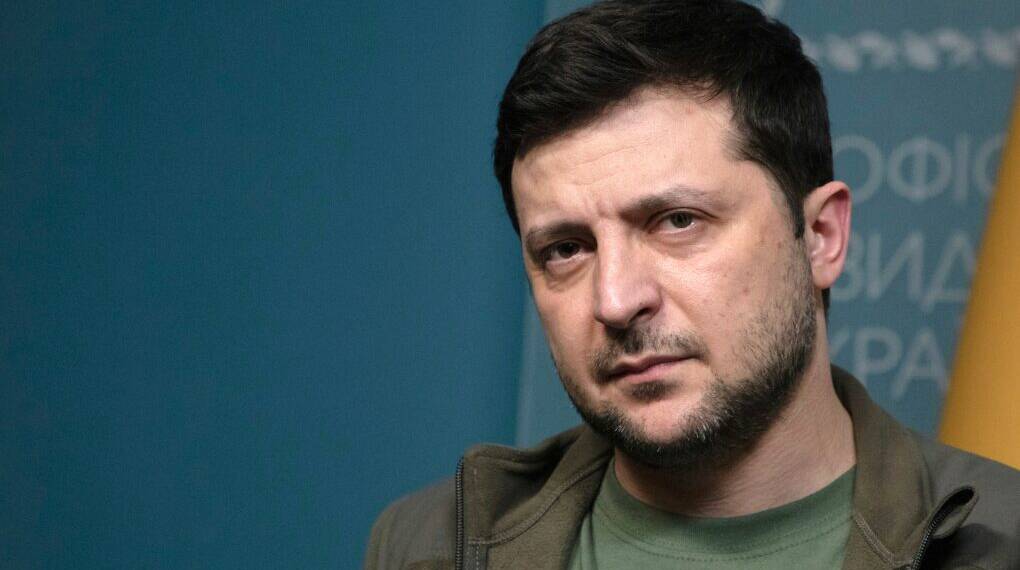As Ukraine’s war with Russia grinds into its fourth year, President Volodymyr Zelensky faces an unexpected front of resistance — not from Moscow, but from within his own borders. Across several major Ukrainian cities, mayors and local officials are increasingly at odds with the presidential administration, accusing it of consolidating power, silencing dissent, and sidelining local governance under the pretext of martial law.
The latest flashpoint erupted in Odesa, where Zelensky stripped long-serving mayor Hennadiy Trukhanov of his Ukrainian citizenship on October 14.
The Security Service of Ukraine (SBU) alleged that Trukhanov held a Russian passport issued in 2015, violating Ukrainian laws that forbid dual citizenship. The revelation, backed by leaked documentation, led to an immediate presidential decree revoking his citizenship and effectively removing him from office.
In a televised address, Zelensky said the decision was about “security and loyalty,” emphasizing that no public official could “serve two masters” during wartime. However, critics saw it as a move to neutralize a powerful local leader who had frequently challenged Kyiv’s authority.
Trukhanov, who has governed Odesa since 2014, denies the allegations, calling them a “political execution.” He vowed to appeal to Ukraine’s Supreme Court, arguing that the move violates due process and local autonomy. “I have served my city under fire, not Moscow,” he declared in a press briefing.
Following the revocation, Zelensky announced that Odesa would be placed under a military administration, citing ongoing “security issues” and failures in local governance — including delays in repairing power infrastructure and flood damage. The appointment of a military administrator effectively suspends civilian control of one of Ukraine’s most important port cities.
Opposition lawmakers, including Oleksii Honcharenko, denounced the move as “a political crackdown disguised as national security.” Analysts warn that such steps risk alienating regional leaders whose cooperation is crucial for maintaining stability in wartime Ukraine.
While Odesa’s case has drawn the most attention, Kharkiv — the nation’s second-largest city — has also seen rising tension between the local government and Kyiv. Although rumors circulated online that Mayor Ihor Terekhov was facing similar accusations, no official action has been taken against him. Terekhov remains in office and continues to lead recovery efforts after repeated Russian bombardments.
Still, political observers note a “chill” between Kharkiv’s city hall and the president’s office. Local officials privately complain that funding and reconstruction aid are often delayed or selectively distributed, depending on political loyalty. “The message is clear — fall in line, or risk losing everything,” one city council member told local media on condition of anonymity.
Perhaps the most outspoken critic of Zelensky’s leadership has been Kyiv Mayor Vitali Klitschko, who has repeatedly clashed with the president over issues of governance and accountability. Earlier this year, Klitschko accused Zelensky of “paralyzing city councils” and using martial law as an excuse to suppress opposition. By mid-2025, he openly warned that “Ukraine is beginning to smell of authoritarianism.”
Klitschko’s remarks resonated beyond the capital, especially after Kyiv witnessed large anti-government protests in July, the first since the war began. Thousands of demonstrators gathered in Independence Square to denounce a controversial law curtailing the independence of anti-corruption agencies such as NABU and SAPO. Protesters accused the government of backsliding on post-2014 reforms, chanting “Corruption equals death.”
The backlash was strong enough to force Zelensky to withdraw the law and promise to restore oversight — a sign that Ukraine’s civil society remains active and defiant, even amid war.
In western Ukraine, mayors in Lviv and Ternopil have also expressed concern over increasing centralization. Lviv’s Mayor Andriy Sadovyi warned in a recent interview that while unity is essential during conflict, “we must not lose democracy in the process.”
Zelensky’s supporters counter that his actions are necessary to maintain national security. With millions displaced, vast territories under occupation, and active Russian sabotage operations, the president argues that extraordinary measures are unavoidable. “There can be no democracy under bombs,” Zelensky told Ukrainian TV last month, defending his decision to delay national elections until martial law is lifted.
Still, critics insist that Ukraine’s fight for freedom abroad must not erode freedom at home. Political analyst Olena Holovach summarized the dilemma: “Zelensky is walking a tightrope — every move to strengthen wartime control risks weakening democratic legitimacy.”
For now, Ukraine’s internal fractures remain manageable. But the escalating feud between Kyiv and its mayors signals deeper unease in a nation stretched to its limits — militarily, economically, and politically.
If Zelensky cannot reconcile the need for unity with respect for local autonomy, Ukraine’s democratic experiment — born from the 2014 Revolution — could face its most serious test yet.








